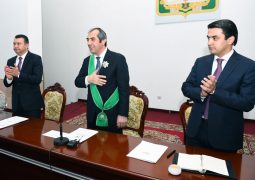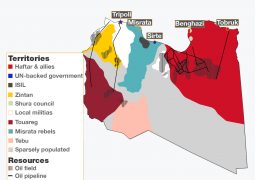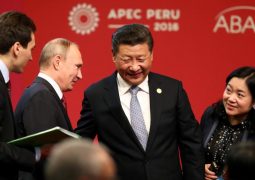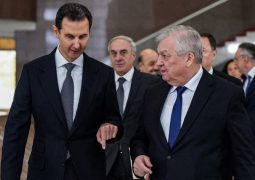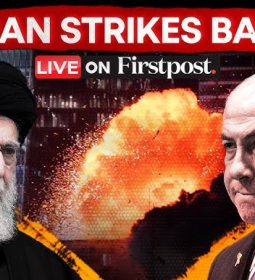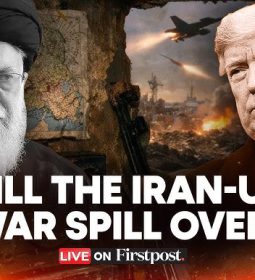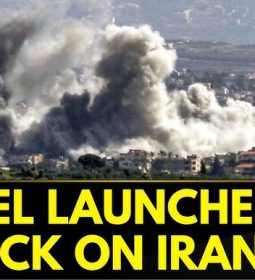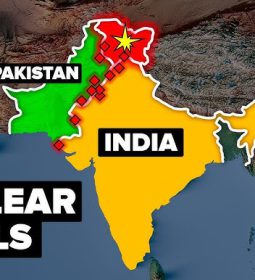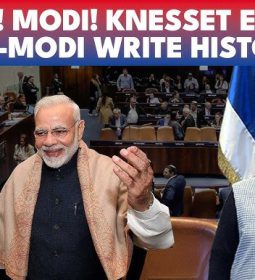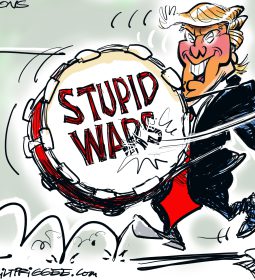New York Times: Yemen Has Been a Saudi Prince’s War. Now It’s His Quagmire.
02:45 19 july 2019
Next up: a proposal that would bar Trump from launching a military strike against Iran, which supporters predict will pass in a vote set for Friday. The twin legislative actions represent a new level of congressional push back against Trump’s foreign policy, as Democrats use their House majority to rebuke the president over his aggressive stance toward Iran and his cozy ties with Saudi Arabia. Both amendments are being considered as part of a broader defense bill. The Senate approved its version of the defense bill last month without those contentious add-ons.
 © Adam Schreck/Associated Press A gunner on a United Arab Emirates Chinook helicopter over Yemen in 2017. The pullout by the Emiratis leaves the Saudis with difficult choices.
© Adam Schreck/Associated Press A gunner on a United Arab Emirates Chinook helicopter over Yemen in 2017. The pullout by the Emiratis leaves the Saudis with difficult choices.
From the beginning of Saudi Arabia’s intervention in Yemen, it was Prince Mohammed’s war.
Prince Mohammed bin Salman, then 29 and in his third month as defense minister, was shown in official photographs surrounded by generals, poring over maps, inspecting a helicopter and even wearing a pilot’s headset while riding in the back of a military transport plane.
Four years later, the war is lodged in a stalemate and Prince Mohammed’s signature fight has become a quagmire, diplomats and analysts say.
A steep pullout of allied the United Arab Emirates, they say, raises questions about Saudi Arabia’s ability to lead the war on its own.
Saudi Arabia is planning this year to loosen restrictions on women’s ability to travel without a male guardian’s permission, a rare step against the system of male domination.
Emboldened by the hawkish comments of Trump administration officials, Prince Mohammed is now hoping Washington will help make up the difference with new American military support, according to diplomats with knowledge of the conversations.
But congressional opposition to the war makes that highly unlikely, leaving the prince with some potentially humbling choices.
“It hurts him because it injures his credibility as a successful leader,” said Kristin Smith Diwan, an analyst at the Arab Gulf States Institute. His personal investment, she said, could motivate him to search for some partial accommodation he could label a victory.
 © Erin Schaff/The New York Times President Trump with Crown Prince Mohammed bin Salman in Osaka, Japan, last month. The Saudis are asking for more military support from Washington for the war in Yemen.“Not many people in Saudi Arabia feel this is a wise investment for the future,” she added.
© Erin Schaff/The New York Times President Trump with Crown Prince Mohammed bin Salman in Osaka, Japan, last month. The Saudis are asking for more military support from Washington for the war in Yemen.“Not many people in Saudi Arabia feel this is a wise investment for the future,” she added.
 Representatives from Yemen’s government and Huthi rebels tasked with pulling forces out of the key port city of Hodeida met Sunday for the first time in five months.
Representatives from Yemen’s government and Huthi rebels tasked with pulling forces out of the key port city of Hodeida met Sunday for the first time in five months.
The Saudis launched the campaign in 2015 to try to roll back a takeover by the Houthis, a Yemeni faction backed by Iran. The war has killed thousands of civilians and put more than 12 million people at risk of starvation but has failed to dislodge the Houthis from control of the capital and much of the country.
While the Saudis have fought almost entirely from the air, the Emiratis, seasoned by years of combat alongside the American military in Afghanistan and elsewhere, led virtually every successful ground advance. Behind the scenes, Emirati officers, weapons and money played an equally critical role in holding together a fractious alliance of mutually hostile Yemeni militias, which have already begun jostling to fill the power vacuum left by the Emiratis.
 © Mohamed Al-Sayaghi/Reuters The site of an airstrike by the Saudi-led coalition in Sanaa in May. The Saudi-led war has killed thousands of civilians, mostly by airstrikes.As a result, analysts said, the Emirati exit makes the prospect of a Saudi military victory even more remote.
© Mohamed Al-Sayaghi/Reuters The site of an airstrike by the Saudi-led coalition in Sanaa in May. The Saudi-led war has killed thousands of civilians, mostly by airstrikes.As a result, analysts said, the Emirati exit makes the prospect of a Saudi military victory even more remote.
Police arrested a man in Prince William County who they say was impersonating an officer. Prince William County police saw a vehicle with flashing lights stopped near Van Buren Road and Fettler Park Drive in Dumfries Friday morning. Police say when they approached the car the driver first identified himself as a government contractor and then said he was a volunteer firefighter. The man was also wearing a bullet proof vest and a gun belt. An investigation revealed the driver, identified as Christopher Santiago, 21 of Triangle was not employed by any law enforcement or government agency.
“Saudi Arabia can prevent peace from breaking out and can bleed the Houthis on a never-ending northern front,” Michael Knights, a researcher at the Washington Institute for Near East Policy, argued in a report this week. “But only the U.A.E. had the military potency and local allied forces to credibly threaten defeat for the Houthis.”
But the Saudis cannot easily withdraw either, partly because of the kingdom’s 1,100-mile border with Yemen.
 © Tyler Hicks/The New York Times A malnourished girl, lying on the bed, at a clinic in Hajjah last year. The war in Yemen has put more than 12 million people at risk of starvation.Since the Saudi intervention began, the Houthis have fired more than 500 missiles and sent more than 150 explosive-laden drones into the kingdom, Saudi researchers say. Although only a few have hit targets and the damage has been minimal, the escalating pace of the attacks makes it difficult for the Saudis to walk away.
© Tyler Hicks/The New York Times A malnourished girl, lying on the bed, at a clinic in Hajjah last year. The war in Yemen has put more than 12 million people at risk of starvation.Since the Saudi intervention began, the Houthis have fired more than 500 missiles and sent more than 150 explosive-laden drones into the kingdom, Saudi researchers say. Although only a few have hit targets and the damage has been minimal, the escalating pace of the attacks makes it difficult for the Saudis to walk away.
Even if the Houthis suspended the attacks, the Saudis argue, they could pose an even greater threat if they were allowed to consolidate their hold on the country.
“The Saudis don’t have the luxury of walking out of Yemen,” said Farea al-Muslimi, chairman of the Sanaa Center for Strategic Studies, a research institute in the Yemeni capital. “There is no way to flee.”
Some Western and United Nations diplomats hope that the Emirati withdrawal will push Prince Mohammed to negotiate a deal with the Houthis, potentially trading an end to the Saudi-led air campaign for some measure of security on the long border. He already faces mounting criticism in Congress and across the West for the war’s devastating impact on civilians.
 © Hani Mohammed/Associated Press New Houthi fighters at a recruiting drive in Sanaa in 2017. The Saudis began a campaign to try to roll back a Houthi advance in 2015, but they have failed to dislodge the Houthis from control of much of the country.But Prince Mohammed has now consolidated power as the crown prince and de facto ruler under his aging father, King Salman, and faces little domestic pressure to end the war, diplomats and analysts say.
© Hani Mohammed/Associated Press New Houthi fighters at a recruiting drive in Sanaa in 2017. The Saudis began a campaign to try to roll back a Houthi advance in 2015, but they have failed to dislodge the Houthis from control of much of the country.But Prince Mohammed has now consolidated power as the crown prince and de facto ruler under his aging father, King Salman, and faces little domestic pressure to end the war, diplomats and analysts say.
The crown prince appears to have suppressed any opposition from within the royal family. The royal court controls the news media, and with Saudi forces largely in the air there have been few reports of Saudi casualties.
Prince Mohammed “never seemed to me to see this as the most important thing in his life,” said Joseph W. Westphal, the former United States ambassador who served in Riyadh from the beginning of the intervention through early 2017.
NEW YORK (AP) — Janet Jackson, Chris Brown, 50 Cent, Future and Tyga have been added to the lineup for the Jeddah World Fest, the concert in Saudi Arabia that Nicki Minaj pulled out of because of human rights concerns. The website for the event, to take place Thursday at the King Abdullah Sports Stadium, posted photos of the newly added acts alongside previously announced performers Liam Payne and Steve Aoki. The Human Rights Foundation and other organizations have asked artists not to perform in Saudi Arabia, where gender segregation between single men and women is enforced in many restaurants, coffee shops, public schools and universities.
One reason the war has not generated more domestic opposition, he said, is that the fear of Iranian influence that motivated the intervention “is not just limited to the royal family — the Saudis just have an intense, passionate feeling that they are under threat.”
Yet the Emirati drawdown has also severely weakened the Saudis’ bargaining power, raising the potential cost to Prince Mohammed of any negotiations to end the Houthi attacks.
Boxed in, he has asked for more aid from the United States. The Americans already provide logistical support and sell weapons to the Saudis. The Saudis are hoping for at least greater sharing of American intelligence and possibly the deployment of special forces teams or military advisers, diplomats said.
But Washington, the Saudis complain, has sent mixed messages about its support for the war. To the surprise of the Saudi leaders, outrage over the Saudi killing and dismemberment last fall of the dissident journalist Jamal Khashoggi, who lived in Virginia and wrote for The Washington Post, prompted American lawmakers to look more skeptically at the war in Yemen.
Congress passed legislation this year demanding an end to United States military support for the war, including arms sales to Saudi Arabia. Pentagon officials, meanwhile, have concluded on their own that the war has degenerated into an unwinnable quagmire and have urged the Saudis for months to try to negotiate an end to the fighting.
But President Trump has repeatedly vetoed legislation cutting off American support for the war. As tensions with Iran have heated up, other administration officials — like Secretary of State Mike Pompeo and John R. Bolton, the national security adviser — have sounded almost as hawkish as the Saudis about the danger posed by the Iranian alliance with the Houthis.
 The president is sure to veto the resolutions.
The president is sure to veto the resolutions.
At an American-sponsored conference in Warsaw in February, Mr. Pompeo bluntly told the Saudis and others that the coalition fighting in Yemen should kick the stuffing out of the Houthis, one diplomat present said, although he said Mr. Pompeo used an earthier noun than stuffing. The diplomat spoke on condition of anonymity to describe a private meeting.
The State Department declined to comment.
The Saudis say statements like Mr. Pompeo’s remind them that Washington shares an interest in containing Iranian influence by rolling back the Houthis.
“Why haven’t the Americans carried out a single operation to help?” asked Mustafa Alani, a scholar at the Saudi-backed Gulf Research Center who is close to the royal court.
He recommended that the Saudis take a blunter approach to convincing Washington that the Houthis were an American problem: withdraw completely and let the United States deal with the anti-Western militants and Iranian surrogates he says would overrun Yemen.
“I would do what the Americans did in Somalia,” Mr. Alani said. “Turn off the light, shut the door, and say, ‘to hell with it.’”
Asked about Saudi plans to fill the void left by the Emirati drawdown, an official of the Saudi Embassy in Washington said last week that the kingdom would rely more on Yemeni allies.
“The coalition has implemented training programs that have enabled local partners to develop the capability to defend their country,” the official said in a written statement, issued on condition of anonymity under standard Saudi practices.
But the Yemeni militias have already started disagreeing about who will take charge in the Emiratis’ absence, underscoring the fragility of the alliance.
Last week, allies of Tareq Saleh, a maverick nephew of the former Yemeni strongman Ali Abdullah Saleh, floated the idea that the Saudi-led coalition had tapped him to be the new leader of the Yemeni forces previously under the Emiratis.
That did not last long. A powerful ultraconservative Islamist militia known as the Giants Brigade, also backed by the Emiratis, quickly issued a statement saying that it would never accept Mr. Saleh because he was from northern Yemen, not the south.
Then another powerful militia, composed of southern Yemeni separatists paid and armed by the Emiratis, began promoting itself as the favorite successor to Emirati leadership. A separatist television network broadcast video of a top Emirati general touring its bases.
The separatists are the sworn enemies of the Yemeni president sponsored by the Saudis, Abdu Rabbu Monsur Hadi.
“The problem for the Saudis today is that in contrast to the Emiratis, their main client is quite weak and ineffective,” said Emile Hokayem, a scholar at the International Institute for Strategic Studies, referring to Mr. Hadi.
Whatever happens now, Mr. Hokayem added, “whether they like it or not, the Saudis own that.”
Reporting was contributed by Saeed al-Batati, Eric Schmitt, Declan Walsh and Edward Wong.
- Previous Afghan colonel killed in ‘insider attack’ near US forces
- Next Abu Dhabi is trapped in a nightmare of its own making




